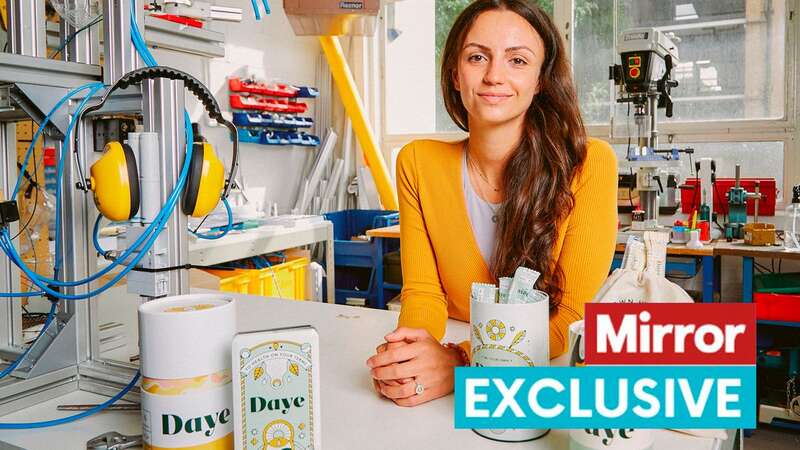
Cervical cancer is the fourth most common cancer among women, and while outcomes for the disease have steadily improved, it still sadly claims hundreds of lives a year.
However, the condition is highly preventable and can be cured - if detected and treated early enough, which is why it is so important to attend a cervical cancer screening.
Data shows more than nine in ten women had their cervical cancer cured after it was spotted at stage 1 - the earliest stage. It's important to note women with early cervical cancers and pre-cancers usually have no symptoms, which adds to the growing number of deaths.
This, alongside poor screening awareness in many parts of the world, has meant cases have steadily increased.
Around three thousand UK women are diagnosed with cervical cancer every year, with 51 per cent of those with it surviving for more than a decade between 2013 and 2017, says Cancer Research UK.
 Hospitals run out of oxygen and mortuaries full amid NHS chaos
Hospitals run out of oxygen and mortuaries full amid NHS chaos
As part of Cervical Screening Awareness Week, women's health expert Valentina Milanova, founder of gynaecological health company Daye, spoke exclusively to the Mirror about the disease, answering any questions you may have.
Want to get the latest health news direct to your inbox? Sign up for the Mirror Health newsletter
What is cervical cancer?
Cervical cancer is a gynaecological cancer that takes place in the cervix (the connecting organ between the vaginal canal and the uterus). Cervical cancer is the second deadliest cancer in women and assigned female at birth (AFAB) individuals.
Cervical cancer is most frequently caused by a high-risk human papillomavirus (HPV) strain. HPV can be passed on through sexual contact. If left undetected and untreated, cervical cancer can spread beyond the reproductive tract.
What are the symptoms ?
The symptoms of cervical cancer can vary greatly. It's important to note that a lot of patients will not experience any symptoms at all. This is why it is very important to get a regular smear and an HPV test. Some of the most common cervical cancer symptoms are:
- Abnormal vaginal bleeding between periods or after penetrative vaginal intercourse
- Vaginal bleeding after menopause
- Unusual, persistent vaginal discharge
- Chronic pelvic pain and lower abdominal bloating
- Persistent fatigue and unexplained weight loss
What are the risk factors for cervical cancer?
The three risk factors that increase your risk of cervical cancer most significantly include:
- Having a high-risk HPV strain, such as strain 16 and 18
- Not getting a smear test or HPV test regularly and therefore not detecting precancerous cells on time
- Smoking, which can weaken your immune system and make it more difficult for your body to fight off an HPV infection
How can I lower my chances of getting it?
The best ways to lower your risk of cervical cancer are:
- Always use condoms, even when in a long term relationship, to minimise the risk of HPV infection
- Get vaccinated even if you are no longer a teenager. You can get the vaccine up to 45 years old and regardless of your sex
- Get a smear test every three years, or every six months - one year if you have a high-risk HPV strain
- Quit smoking
 Cervical cancer can be cured - if detected and treated early enough - which is why it is so important to get screened. (Getty Images)
Cervical cancer can be cured - if detected and treated early enough - which is why it is so important to get screened. (Getty Images)How often should I be screened?
The frequency of cervical cancer screening depends on various factors, including age, previous screening results, and the guidelines specific to your country or region. In general, guidelines recommend the following:
- Start having smear tests at the age of 21. Have a smear every three years.
- Get HPV tests at the age of 21. Have an HPV test every five years. Have them more frequently if a high-risk strain has been detected.
In the UK, people aged 25 to 49 receive invitations for cervical screening every 3 years. Those aged 50 to 64 receive invitations every 5 years.
How can I get a cervical cancer screening?
To get a smear test or an HPV test, schedule an appointment at your GP practice, or go to your local sexual health clinic.
 Mystic Mag's 2023 predictions include strikes, sleaze, self pity and separation
Mystic Mag's 2023 predictions include strikes, sleaze, self pity and separation
Why is cervical cancer screening so important?
Cervical cancer screening is particularly important because the disease is highly preventable and can be detected at an early stage through regular screenings. Once detected, the disease can be treated, and patients can retain their overall health and fertility.
What is the uptake of cervical cancer screening? Do many people not take the opportunity?
In some countries in Europe, cervical cancer screening uptake can be as low as 7 per cent. A study by Jo's Cervical Cancer Trust showed that 80 per cent of women who work full-time in the UK have been unable to get a convenient cervical screening appointment and one in five have used their annual leave to attend their appointment. Studies by the RCOG (Royal College of Obstetricians and Gynaecologists) show that around 600,000 women in the UK are on a waiting list for a smear test.
What can be done to encourage more people to get screened?
To make cervical cancer screening more accessible, we should invest in developing at-home detection methods that don't require women and AFAB individuals to go into a clinic.
Daye is currently working on developing an at-home HPV detection kit which will use a menstrual tampon to collect a patient's sample rather than an uncomfortable swab. Investing in cervical cancer screening clinics on wheels that meet women at work or in a childcare setting would also increase rates of adherence.
It's very important that we invest in education as well - not everyone has sufficient awareness about the importance of regular cervical cancer screening. We need to raise public awareness about the importance of cervical cancer screening and its potential benefits. Society should be providing women with accurate and accessible information through various channels, including social media, TV, radio, and community outreach programs. We need to emphasise the effectiveness of early detection in preventing or treating cervical cancer.
Read more similar news:
Comments:
comments powered by Disqus





























